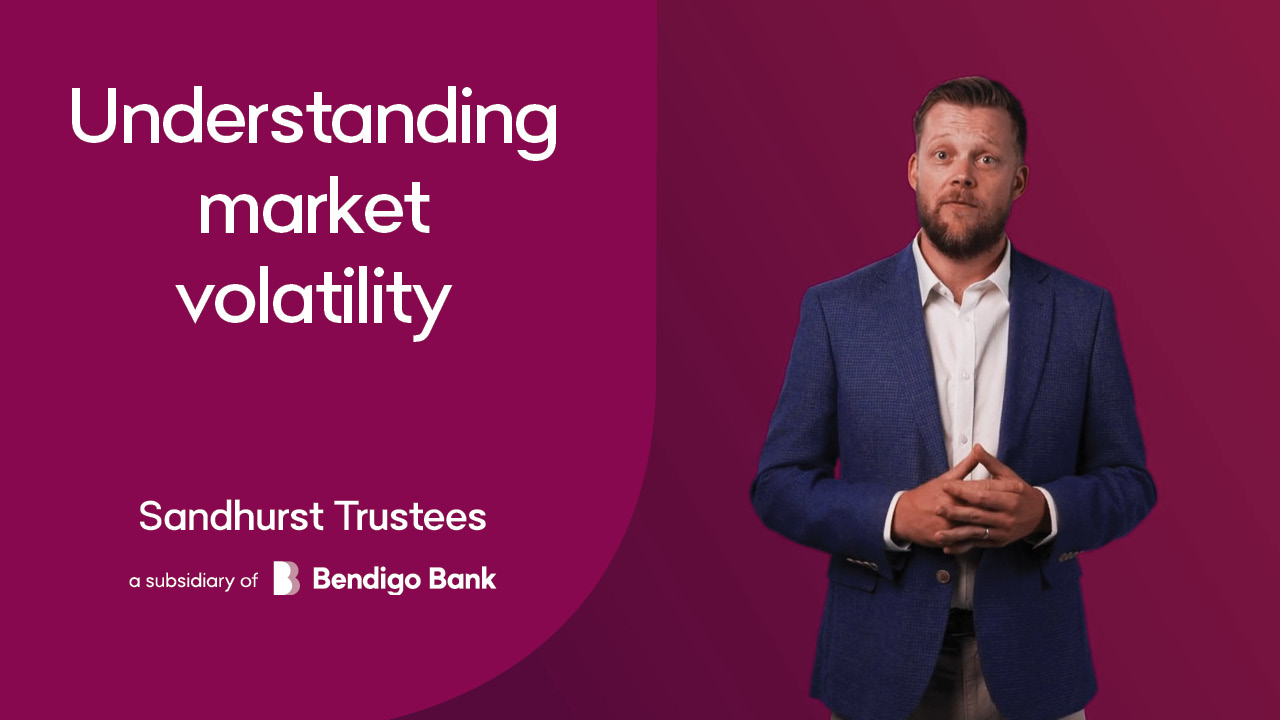5 minute read
Market volatility
Investment market conditions have been difficult in recent times, impacting returns on all investments.
Our investment team are working hard to manage this volatility. We wanted you to know how they take market volatility into consideration when managing your investment. Here are some things to consider when understanding market volatility.
Market volatility explained
It's important to remember that periods of volatility are normal and that over time, stability within the market returns. Whilst a volatile market can be unsettling and increase your investment risk, it can also present investment opportunities.
History has shown that markets usually recover from downturns and it’s during periods of recovery, investment opportunities arise. By taking advantage of the lower price point of assets during a market downturn, investors with well-managed investments (including super) can take advantage of volatility.
Market volatility is not as scary as you might think; understanding and planning for volatility can help you prepare for the long-term.
Planning for volatility
Some facts to keep in mind during a market downturn:
- If your investment includes superannuation, remember super is a long-term investment and can generally only be accessed when you retire. For many people, this means there should be enough time for your super to recover from short-term movements.
- Revisit your investment strategy to remind yourself of your goals and objectives, including your timeframe for investing and your intent for the funds. If there has been no change to your goals and objectives, your investment option may remain suitable. However, if you are nearing retirement, your investment timeframe and/or your personal circumstances are changing, you may need to consider reviewing your investment strategy.
- Higher returns do come with some risk. Ensure you understand how much risk you are willing to take. It’s important to put the current market movements in the context of your long-term investment objectives.
- Market volatility is inevitable. It’s the nature of markets to move up and down over the short term. Given the difficulty in timing market reactions to global events and uncertainty, the best approach for most investors is to stick to an appropriate long term investment strategy and ignore short term fluctuations.
How has your investment been performing over the long term?
To see how your Sandhurst investment options have been performing over the long-term, visit the performance comparison table.
Sandhurst Trustees have a team of highly experienced investment managers who continuously monitor each portfolio and the economic outlook. The investment team are trained to deal with stressed market events, with many of them having worked through the Global Financial Crisis and COVID-19 pandemic.
Additional information to consider:
What happens if I do nothing?
- Your investment value, as it always has, will fluctuate according to market movements.
- As the volatility in the market continues, you may see the value of your investment fluctuate in the short term.
What happens if I switch to cash and/or withdraw my investment?
- It will take time for your request to be processed, it may not happen immediately.
- You may risk locking in a loss by selling your investment at lower prices.
- Furthermore, you may miss the market upturn when investment markets regain confidence.
If you have any questions, email WealthConcierge@bendigoadelaide.com.au or complete an enquiry form and we will get in touch.
For more helpful articles, visit the Education HUB.
Read next
Risk vs return
Investing can be a great way to grow your money and reach your financial goals. However, it’s important to understand that all investments carry a degree of risk. So, how can you balance risk vs return?
Asset classes explained
Asset classes refer to the different categories that investments with similar features can be grouped into. Becoming familiar with asset classes can help you to further understand what to expect from the various investment options available to you.
Things you should know
Bendigo Superannuation
Bendigo Superannuation Pty Ltd ABN 23 644 620 128 AFSL 534006 (Bendigo Super) is the trustee and issuer of Bendigo SmartStart Super and Bendigo SmartStart Pension (products). Bendigo Super is a wholly owned subsidiary of Bendigo and Adelaide Bank Limited ABN 11 068 049 178 AFSL 237879 (Bank). Each of these companies receives remuneration on the issue of the products or services they provide, full details of which are contained in the relevant Product Disclosure Statement (PDS). Bendigo Super, the Bank and its related entities do not guarantee the repayment of capital invested, the payment of income or products’ investment performance. An investment in these products does not represent a deposit with, or liability of Bendigo Super, the Bank or its related entities. The Bank does not stand behind or guarantee the performance of Bendigo Super in its capacity as trustee and issuer of the products. Bendigo Super is not an authorised deposit-taking institution within the meaning of the Banking Act 1959.
Information on the website is subject to change without notice. Any advice in relation to superannuation is provided by Bendigo Super. The information contains general advice only and does not take into account your personal objectives, situation or needs. Before making an investment decision in relation to these products you should consider your situation and read the relevant PDS accessible through this site.





